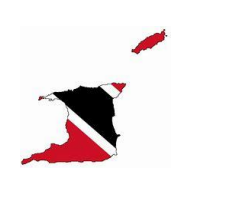
Trinidad and Tobago is a beautiful twin island country located off the northern edge of the
mainland of South America and northeastern of Venezuela. It is considered a part of the Lesser
Antilles and resides near the Caribbean Sea and North Atlantic Ocean. The population of these
islands consists of 1.5 million inhabitants which contain individuals of various ethnic groups.
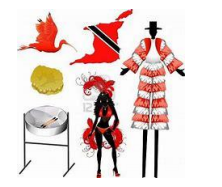
Trinidad and Tobago are considered a multiracial society, due to the combination of ethnicities
which range from those who are of East Indian descent, African descent, Chinese descent, Hispanic
descent, Syrian descent and mixed descent. This country obtained Independence from British rule
in 1962 the 31st of August and became a Republic where they were no longer under the British on
the 24th of September 1976.
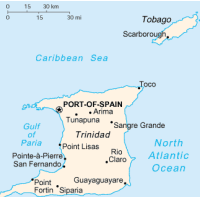
At this time the country gained full freedom from the queen and
developed a new parliamentary system where they now had a head of state, the president, the head
of government, the prime minister and a cabinet consisting of ministers. The nation’s flag consists
of 3 colours each representing different elements of the country. They also have a national emblem
known as the coat of arms, on this symbol the national birds; the Scarlet Ibis and Cocrico can be
seen

The Scarlet Ibis is the national bird specifically for Trinidad and the Cocrico is the national
bird specifically for Tobago.
In addition to being a multiracial society, this country is also a multicultural society with
various festivities and religious holidays or celebrations. Trinidad is commonly known for Carnival
which is held either in the month of February or March
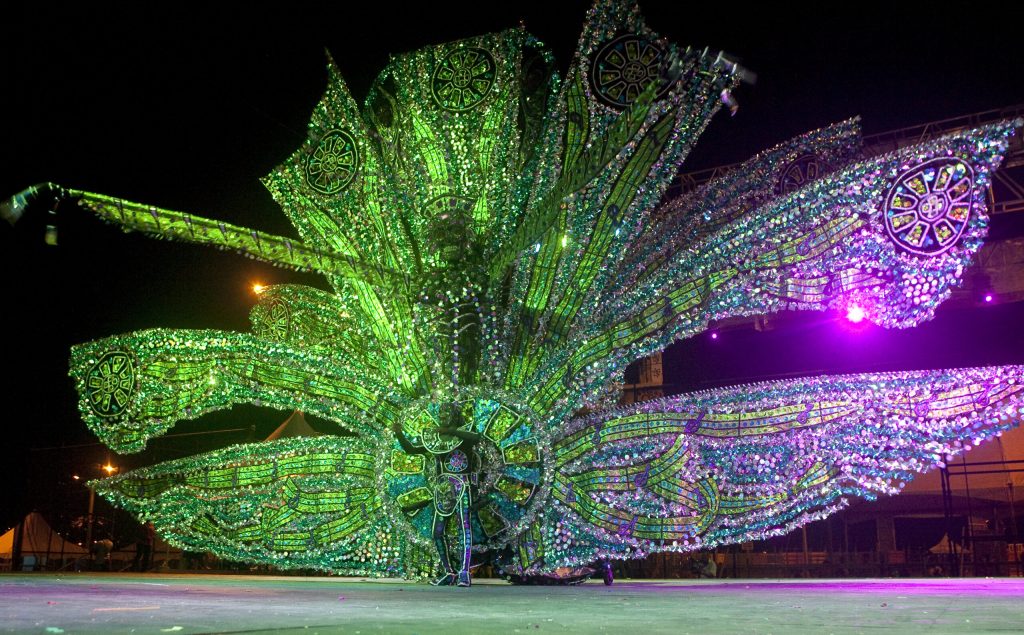
During that season, there are many events
which are held such as Fetes or parties, Soca and Calypso competitions, national Steel pan
competitions called Panorama, Dimanche Gras Show where there are performances and Carnival
King and Queen competitions, Jouvert and the main event called Mas (Masquerade) where
individuals dress in colorful costumes with feathers and beads parading the streets of the towns.

Trinidad and Tobago is the home of the steel pan, also known as their national instrument. The
country is also popular for its beaches, creole style foods and delicacies, for example doubles, roti,
curry crab and dumplings, pelau and bake and shark.
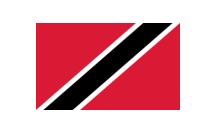
The national flag of Trinidad and Tobago consists of a red background with a diagonal black stripe running from the upper left corner to the lower right corner. The black stripe is bordered by two white stripes, and there is a white five-pointed star in the center of the black stripe.
Red symbolizes fire, black indicates earth and white represents the water or shores of the island.
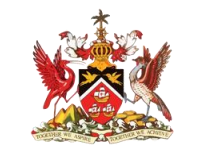
The Coat of Arms incorporates historical and indigenous elements of Trinidad and Tobago.
The Crest: the ship’s wheel in gold in the front of a coconut palm
Birds: Scarlet Ibis, Cocrico and Hummingbird
The National Motto: “Together we Aspire, Together we Achieve.The three gold ships (The Trinity): Represents the discovery of the islands on three ships of Christopher Columbus, the sea connecting its’ people and the beginning of wealth of the country.
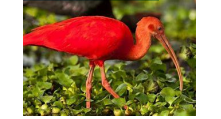
Trinidad and Tobago has two national birds: the Scarlet Ibis and the Cocrico. The Scarlet Ibis is a bright red bird with a long, curved beak and is native to the wetlands of Trinidad. The Cocrico is a brown bird with a distinct call and is native to Tobago’s forests. Both birds are revered for their beauty and are featured on the nation’s coat of arms.
The national bird of Trinidad and Tobago is the Scarlet Ibis, known for its vibrant red-orange feathers. It is a large wading bird with a long, curved bill and is native to the wetlands of Trinidad and Tobago.
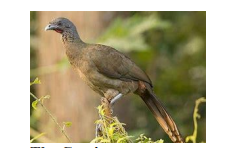
The Cocrico, also known as the Rufous-vented Chachalaca, is a bird species found in Trinidad and Tobago and nearby regions. It has a distinctive appearance with a long tail, a short curved bill, and rufous coloration on its belly and tail. The Cocrico is the national bird of Tobago and is highly valued for its meat, which is a delicacy in the country. It is also considered an important cultural symbol and is featured in local folklore and art.

The Steelpan, also known as the Steel Drum, is a percussion instrument that originated in Trinidad and Tobago. It is made from a large oil drum that is carefully crafted and tuned to produce different musical notes. The Steelpan is a central element of Trinidadian and Tobagonian music and is often used in Calypso, Soca, and other popular music genres. It is also recognized as the national instrument of Trinidad and Tobago and is celebrated worldwide for its unique sound and cultural significance.

Trinidad and Tobago has two national birds: the Scarlet Ibis and the Cocrico. The Scarlet Ibis is a bright red bird with a long, curved beak and is native to the wetlands of Trinidad. The Cocrico is a brown bird with a distinct call and is native to Tobago’s forests. Both birds are revered for their beauty and are featured on the nation’s coat of arms.
The national bird of Trinidad and Tobago is the Scarlet Ibis, known for its vibrant red-orange feathers. It is a large wading bird with a long, curved bill and is native to the wetlands of Trinidad and Tobago.


